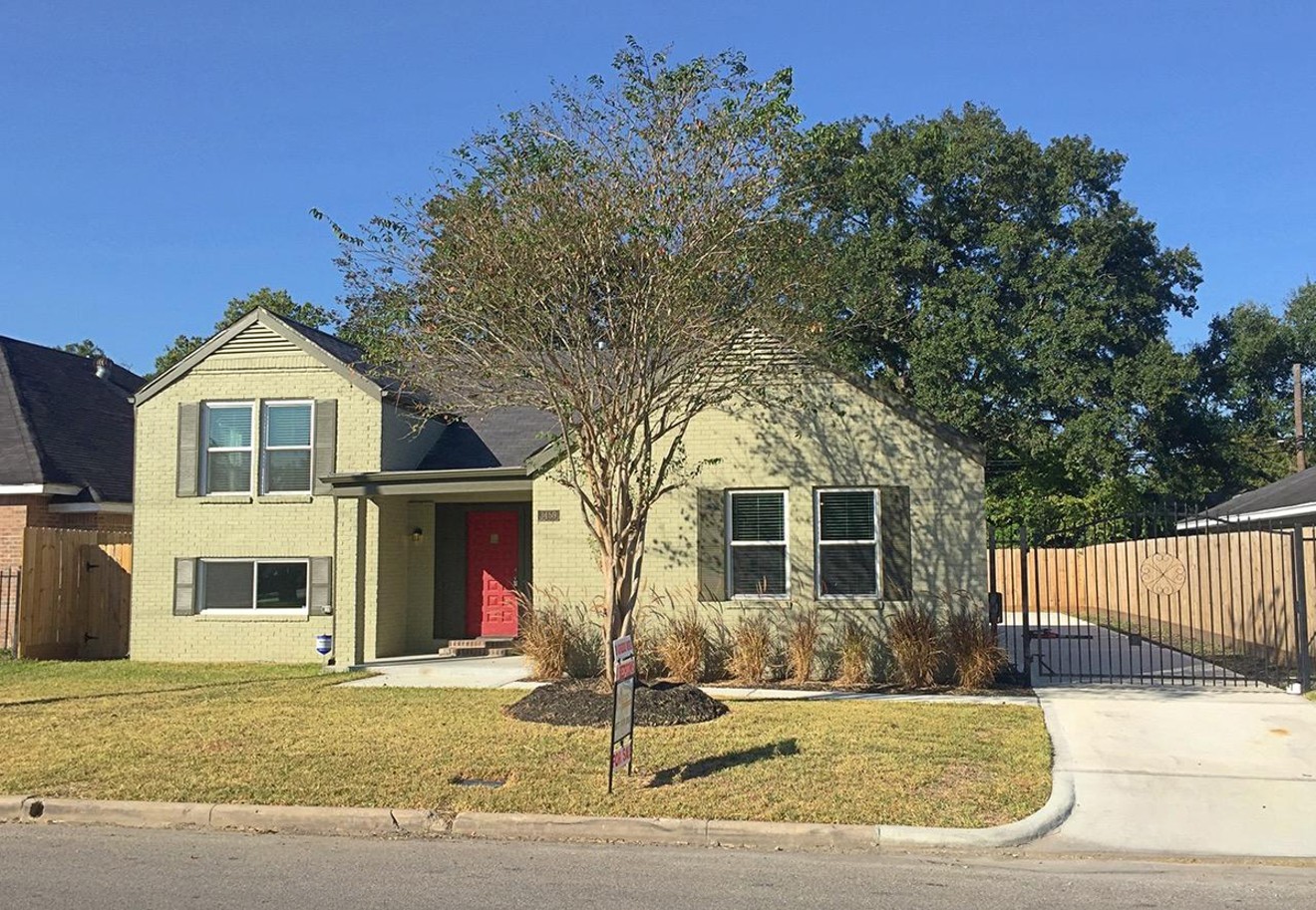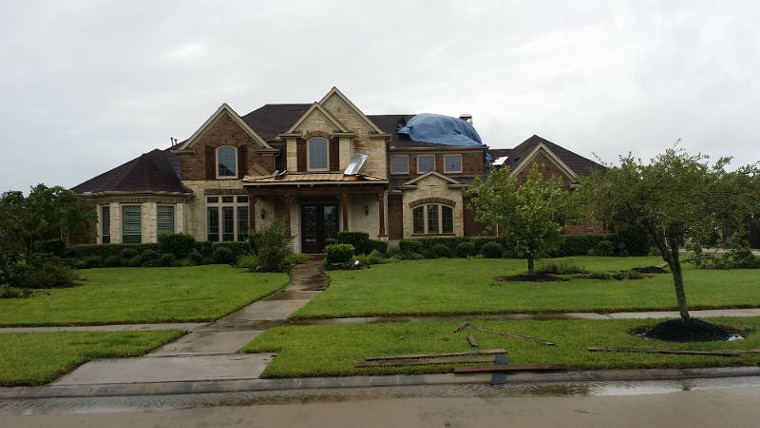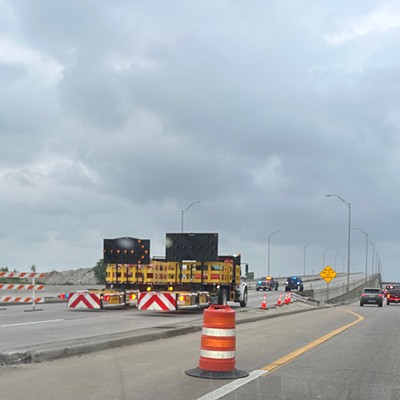Recently, we gave you some tips on buying a new home in Houston. As we thought about it some more, we realized this list wasn't quite complete. Yes, all good information, but we know from firsthand experience that buying a home is not even half the battle. Once you land your new house, then what?
For first time home owners, it can be daunting. There is so much to think about and like having a baby, there is no owners' manual. You're totally on your own here. So, let us help you with a few things to consider after buying your home.
Pay for good insurance.
Insurance is nothing more than peace of mind...until you need it. Then, it's a safety net. Know what your coverage entails. For example, some coverage protects you for leaks under your foundation. Some doesn't. Check it thoroughly and ask and expert for help. It can be the difference between a $9,000 roof replacement and a $250 deductible for the same issue. And do not skimp. Buy more than you think you will need. Trust us on this one.
Prepare for disasters.
Having good insurance will help with this a bit, but even if you aren't in the official "flood plain" in Houston, buy flood insurance. As a friend put it to us, "After I flooded without it, I would buy flood insurance now even if I lived in the middle of a desert." Nothing is more catastrophic that flood waters when it comes to damaging a home. And, in Houston, it could happen any time. While you should have a checklist for what to do when it comes to prepping your home for a hurricane, keep in mind that water typically does far more damage than wind.
Get a home warranty plan and tailor it to your needs.
There are mixed feelings in the home world about home warranties. Some consider them a waste of money, but for first time owners, they can be a life saver. But, make sure they fit what you need. If you have brand new, warrantied appliances, you don't need coverage for those. But, an older home or a pool might require a little more than normal. Shop around for the best prices and plans that fit your home.
Learn about your neighborhood (and neighbors).
Obviously, this should be on your home buying checklist, but even if you have already purchased, it is worth knowing the ins and outs of your hood. Get to know the deed restrictions (if you have any). In Houston, they can be the difference between your choice of house color, whether or not you can have solar panels, where to store your garbage cans and if you can have a boat. Deed restrictions can run the gamut from non-existent to goddamn dictatorial. And get involved when possible so you know what to expect from those in charge. Not all home owners' associations are filled with weird little trolls who peek over your fence looking for infractions, but good to know if that is the case.
And while we are on the topic, get to know your neighbors. The sooner the better. Walk over and introduce yourself. You don't have to love everyone who lives near you, but when your power is out and your neighbor's isn't, they will be much more likely to lend you an outlet to keep your refrigerator running if you are on neighborly terms.
Budget for repairs, even for a new home, and don't put them off if you can avoid it.
When real estate agents discuss cost with you, they rarely include anything beyond your mortgage. They might discuss taxes with you and insurance, but no one tells you about how expensive it is to own a home beyond that monthly payment to your mortgage company. Keeping a house in good working order is complicated. Even new houses have things go wrong with them. Older ones are even more prone to problems. And much, if not all, of it will not be covered by insurance or home warranties.
As you are budgeting for your home, assume repairs to be about half of what you spend on your mortgage, taxes and insurance. That may sound like a lot, but when your a/c unit goes out in August, you'll be glad you were prepared. And when repairs come along, take care of them as quickly as you can. They have a tendency to pile up and steamroll you. That one piece of siding that needs painting might be hiding wood rot that could suddenly inflate your problems beyond what you are able to handle.
Remember costs will rise every year and it's always more than you think it will be.
Another thing no one tells you is that your mortgage might be fixed (hopefully, you don't have a variable rate mortgage), but your taxes and insurance are most definitely not. And the older your house gets, the more repairs will be needed. It's also worth noting that if you are paying escrow, it will be based on how much you paid for taxes and insurance last year. If your property value goes up, not only will your taxes and insurance be higher, but you'll likely have a shortage in your escrow because costs have risen and you'll get a bill from the mortgage company on top of everything else. Just be prepared.
Have a good list of reliable repair services (if you don't have them, ask around).
An experienced home owner always has a list of plumbers, electricians and other home repair experts at the ready. You need people you can trust to handle things for you as they come up. Sometimes, it's simple, like replacing an electrical outlet or unclogging a toilet. Other times, you'll need an experienced HVAC technician to diagnose a more serious issue. If you don't know anyone who does this, consult with your neighbors or post requests online. It's a great way to find capable help.
Oh, and if you are so inclined, watch some YouTube videos on how to handle minor repairs on your own. Get a decent set of tools and go to work. But, don't electrocute yourself in the process.
When assessing your new home, check five critical areas.
These are the most costly and complicated problems to deal with and if you own your home for more than five or six years, one is bound to come across your radar, so be ready.
Foundation
Keep an eye out for cracks in the wall that just emerged or closet doors that suddenly don't close as well as they used to. If you fear a foundation issue, address it immediately.
Roof
Hail damage can often lead to leaks. Sometimes, you won't even know you have a leak until your ceiling caves in. After a storm, get a roof inspection and plan for a replacement every 15-20 years.
HVAC
Heaters are important, but when your a/c goes down in the summer...ugh. This is also likely to be your biggest utility bill, so the more efficient and functional your system is, the better.
Electrical
Nothing will ruin the house of your dreams like an electrical fire, never mind the danger to you and your family. Get those wires and your electrical box inspected.
Plumbing
Old pipes often start with small pinhole leaks that you may not even notice. But, eventually, they can burst and create a huge mess. Re-piping is annoying and costly, but often necessary at a point in the life of your home.
Bonus: Termites
If you bought a wood-framed home, particularly with a pier-and-beam foundation, getting an annual termite inspection is a must. You don't need the beams that hold your home up to suddenly turn to sawdust.
Don't be overly ambitious early on.
Going from an apartment to a house often means you'll need more and newer furniture. You may also want to put a new coat of paint in your bedroom or add soundproofing for your new kick ass recording studio (is that just us?). Whatever you want, take it slow. Remember that there are loads of expenses that come with owning a home. Make reasonable goals and budget accordingly for the first year or two. Once you get into a better place knowing where the costs are, you'll have plenty of time to get that mural of Eddie Van Halen on your office wall or put in an entire room of tiny furniture for your dogs. It's your house, go nuts!
Your yard is part of your home too.
Yard care is something that is often overlooked, but it is important not just for the beauty of your home, but for protecting your house from damage during a storm. Trees should be checked and pruned every year by a professional. Nobody wants a tree rotting from the inside to fall on their house during a hurricane, but it happens. You'll also want to do things like make sure your beds are not above the foundation line around your house. If they are, water can seep in between the foundation and your home, getting under your floors and creating a huge mess. The exterior of your home is more than just the structure, it's your entire yard!
Support Us
Houston's independent source of
local news and culture
account
- Welcome,
Insider - Login
- My Account
- My Newsletters
- Contribute
- Contact Us
- Sign out

Brand new, remodeled or fixer upper, your house will need more from you than you think.
Photo by Tirey "Ty" Counts
[
{
"name": "Related Stories / Support Us Combo",
"component": "11591218",
"insertPoint": "4",
"requiredCountToDisplay": "4"
},{
"name": "Air - Billboard - Inline Content",
"component": "11591214",
"insertPoint": "2/3",
"requiredCountToDisplay": "7"
},{
"name": "R1 - Beta - Mobile Only",
"component": "12287027",
"insertPoint": "8",
"requiredCountToDisplay": "8"
},{
"name": "Air - MediumRectangle - Inline Content - Mobile Display Size 2",
"component": "11591215",
"insertPoint": "12",
"requiredCountToDisplay": "12"
},{
"name": "Air - MediumRectangle - Inline Content - Mobile Display Size 2",
"component": "11591215",
"insertPoint": "4th",
"startingPoint": "16",
"requiredCountToDisplay": "12"
}
]
KEEP THE HOUSTON PRESS FREE...
Since we started the Houston Press, it has been defined as the free, independent voice of Houston, and we'd like to keep it that way. With local media under siege, it's more important than ever for us to rally support behind funding our local journalism. You can help by participating in our "I Support" program, allowing us to keep offering readers access to our incisive coverage of local news, food and culture with no paywalls.
Jeff Balke is a writer, editor, photographer, tech expert and native Houstonian. He has written for a wide range of publications and co-authored the official 50th anniversary book for the Houston Rockets.
Contact:
Jeff Balke
Trending News
- Dan Patrick Sets Off Alarm Bells For Public School Advocates With His Property Tax Trial Balloon
- Texans DE Will Anderson Among Favorites to Win 2024 Defensive Player of the Year
- Rockets 2023-24 Report Card: The Starters
-
Sponsored Content From: [%sponsoredBy%]
[%title%]

Don't Miss Out
SIGN UP for the latest
news, free stuff and more!
Become a member to support the independent voice of Houston
and help keep the future of the Houston Press FREE
Use of this website constitutes acceptance of our
terms of use,
our cookies policy, and our
privacy policy
The Houston Press may earn a portion of sales from products & services purchased through links on our site from our
affiliate partners.
©2024
Houston Press, LP. All rights reserved.






